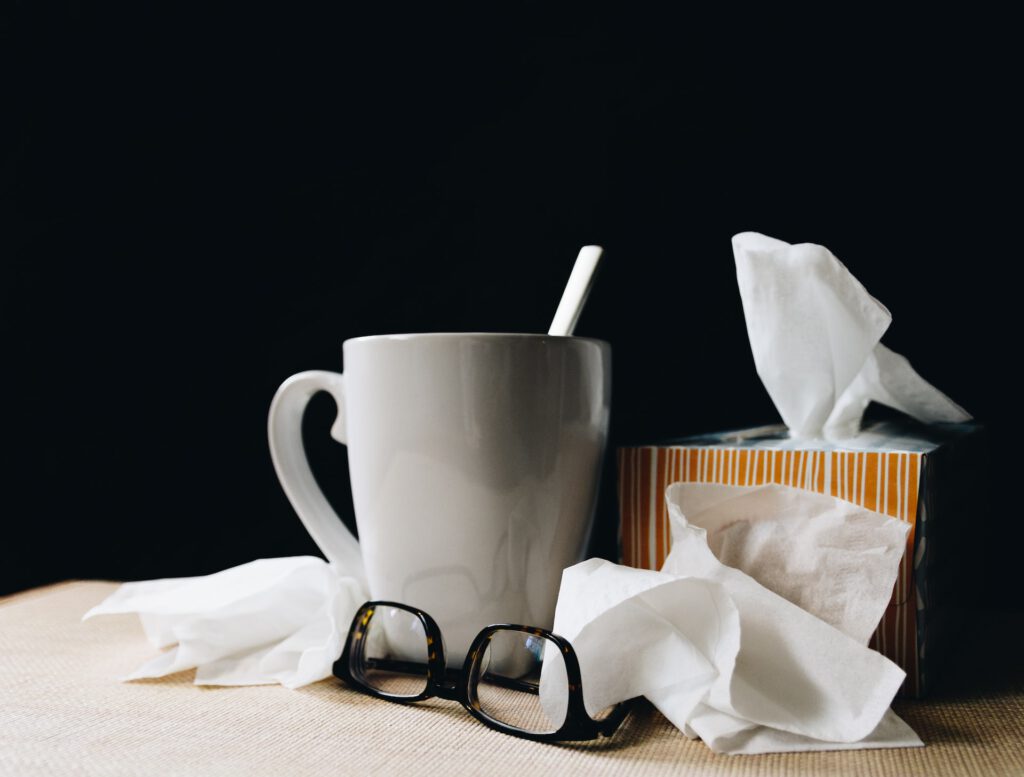Things to Do in the Initial 24 Hours of a Cold or Flu

Collaborative Post
Feelings of dread as you realise: ‘Oh no. Ugh, I feel terrible.’ There is no time to wait and see how serious cold and flu symptoms will develop in their early stages.
Fever, headache, cough, congestion, sore throat, body pains, chills, and/or extreme fatigue are among the early symptoms of the common cold and the flu. By getting medical attention quickly, you can lessen the likelihood that your illness will worsen or spread.
One of the proven techniques to strengthen your immune system is through the use of nutritional supplements. The initial twenty-four hours are the most important. Find out what to do if you feel the beginning of a cold or the flu by reading on.
Avoiding exhaustion
Avoiding exhaustion is a key part of fighting off a cold or the flu as soon as possible
If you’re feeling ill, now is not the time to put in a marathon training session or pull an all-nighter to finish a major project. Now is the time to recharge your batteries and give your body a break. Forcing yourself to do more than you’re capable of right now could prolong your recovery by draining your body of vital energy.
OTC meds can be a big help
Ibuprofen and acetaminophen, both of which are discount Canada drugs that can be purchased online, are helpful for relieving early symptoms like fever, headache, body aches, and sinus pain. Please follow the dosing instructions exactly as written on the label. Don’t try to save money by taking less medicine than is recommended. Remember that aspirin should never be given to anyone younger than 18 and that children’s doses vary based on age and weight. It can cause a life-threatening condition called Reye’s syndrome.
Keep out of the damp and cold!
True, bacteria and viruses flourish in cooler temperatures, but it’s a misconception that you’ll become sick if you don’t bundle up when it’s cold outside. If you’re trying to beat a bug, it’s smart to keep toasty and dry.
Be sure to get enough rest
You should get plenty of rest in the first 24 hours after becoming ill so that your body may begin to heal. Don’t give in to the temptation of staying up late to catch up on emails or binge-watching your favourite shows. Keep an eye out for advice on managing your screen time to protect your eyes from strain and damage. Soothe your weary soul and turn in for the night.
Be sure to hydrate well
One of the best things you can do for your immune system as it prepares for the battle is to drink plenty of water. We have a variety of non-caffeinated beverages, including water, decaf tea, sports drinks, and sugar-free drinks.
If your cold or flu symptoms persist for more than a day, what should you do? After 24 hours, you may want to talk to a doctor if your cold or flu symptoms have not subsided. Flu, strep throat, bronchitis, Covid, and RSV are just some of the illnesses that have symptoms that are similar to one another. While symptoms like a fever, cough, or sore throat may all seem similar, there are important differences between them that require different treatments. Seek medical advice for an accurate diagnosis and effective treatment.
Photo by Kelly Sikkema on Unsplash
Please note. Always seek medical advice if you are concerned about your health.

